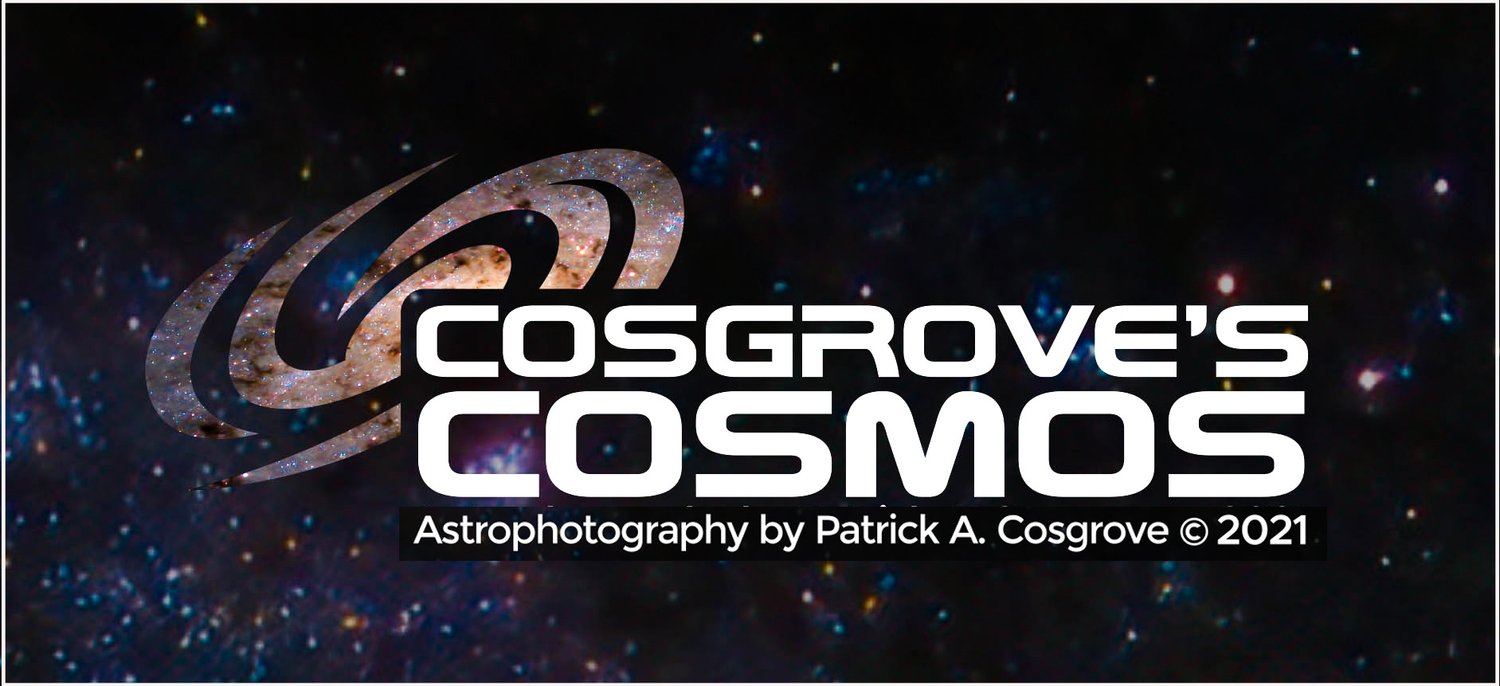Imaging Projects
In this blog, I will share the results of all of my imaging projects. The newest will be at the top and the oldest will be further down the stack. Going back in time here is interesting - some of my early stuff was pretty rough - but I did not see it that way at the time - I was thrilled to get anything back that looked like an image! Hopefully, you will see how my work has progressed with time!
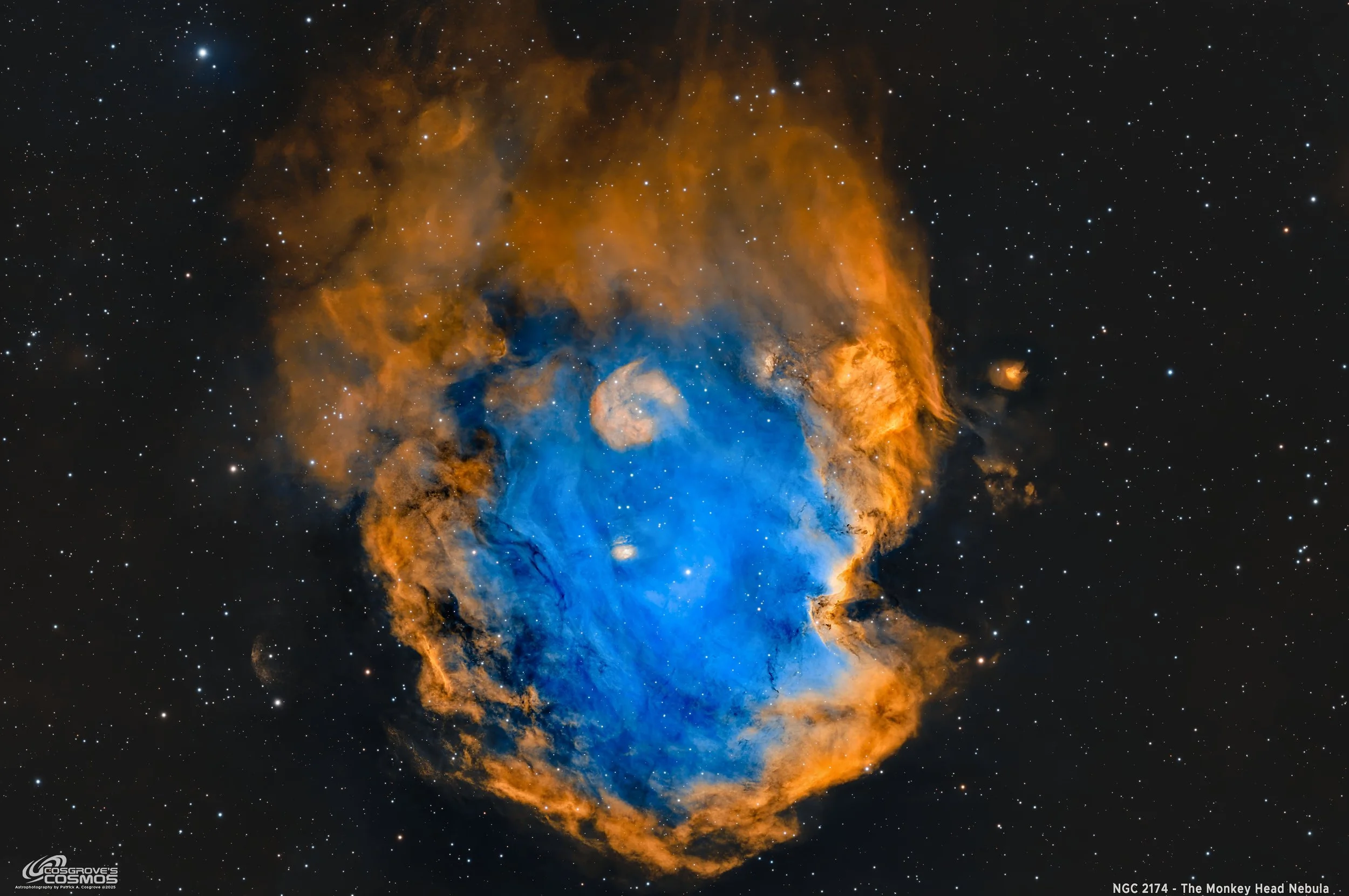
NGC 2174 - The Monkey Head Nebula - 5.1 hours SHO
NGC 2174 — the Monkey Head Nebula — is a luminous star-forming cloud in Orion, roughly 6,400 light-years away. In this project I captured the nebula in narrowband (Hα, OIII, SII), revealing glowing hydrogen arcs, oxygen-rich structure, and dark dust lanes sculpted by intense radiation from young, massive stars. The result is a high-contrast look at an active H II region where stellar feedback is actively reshaping its birth cloud.

Messier 42/43 – The Great Orion Nebula - 6.35 hours in HaLRGB
Orion’s sword is one of the most famous regions in the night sky, and for good reason. This widefield take on M42/M43 and the Running Man blends short and longer RGB/L exposures with H-alpha to balance the bright core against the faint, sculpted outer nebulosity—an image that showcases both the beauty and the ongoing starbirth of our nearest major stellar nursery.

NGC 7380 – The Wizard Nebula Revisited - This time with 25 Hours of SHOrgb!
My Second Attempt - and my finest - with NGC 7380 - The Wizard Nebula.
This is the result of 25 hours of narrowband and RGB exposure on my Williams Optics 132 FLT APO platform, equipped with a 0.8 reducer and an ASI2600MM-Pro camera.
This was another image captured from my new observatory, which allowed for capture on marginal nights.
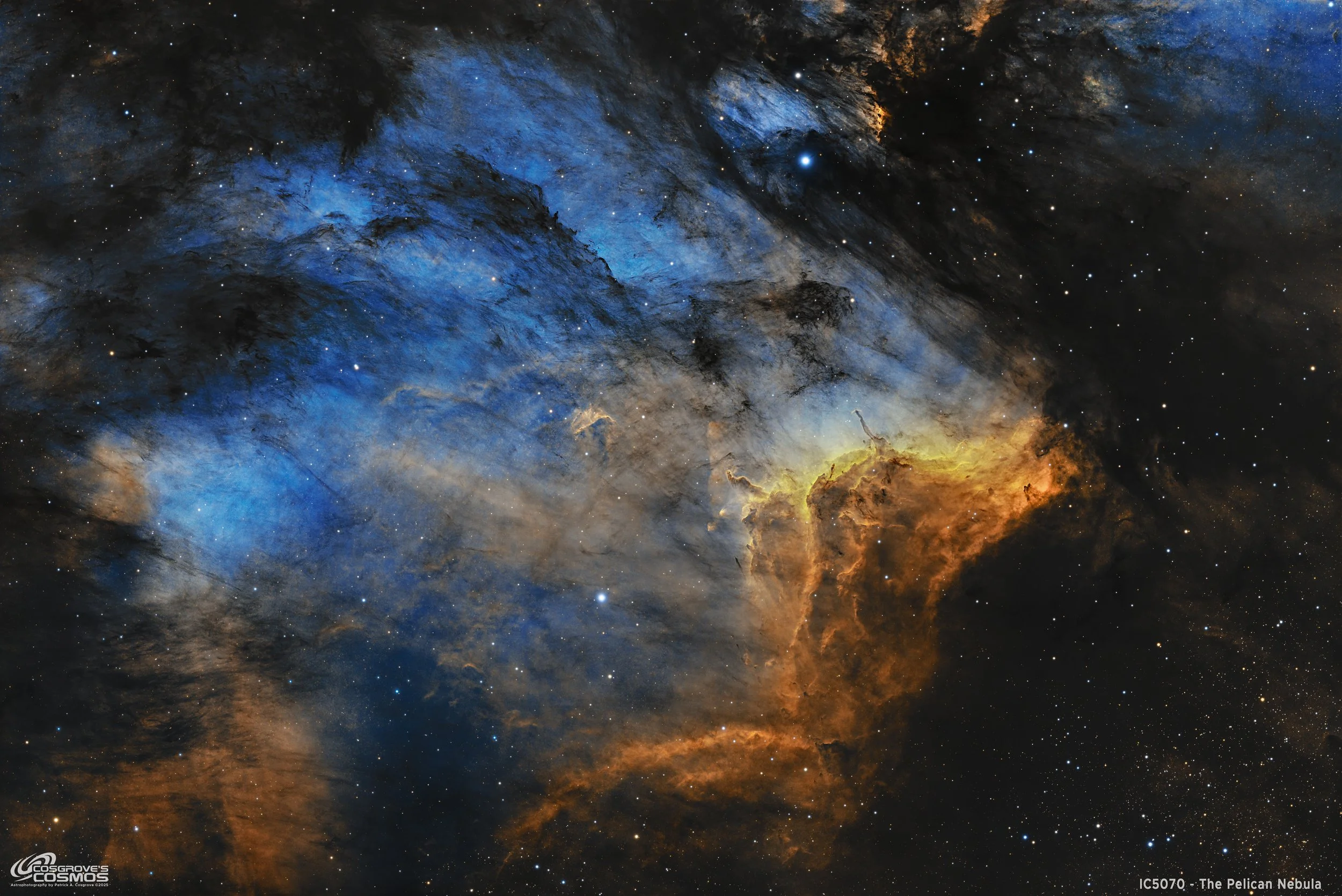
IC 5070 - The Pelican Nebula! 18.75 hours of SHO (my longest integration yet!)
My third attempt - and my finest - at IC 5070 - The Pelican Nebula.
This is the result of almost 19 hours of narrowband exposure on my Williams Optics 132 FLT APO platform with a 0.8 reducer and an ASI2600MM-Pro camera.
This was another image that was captured from my new observatory tht allowed capture on marginal nights.
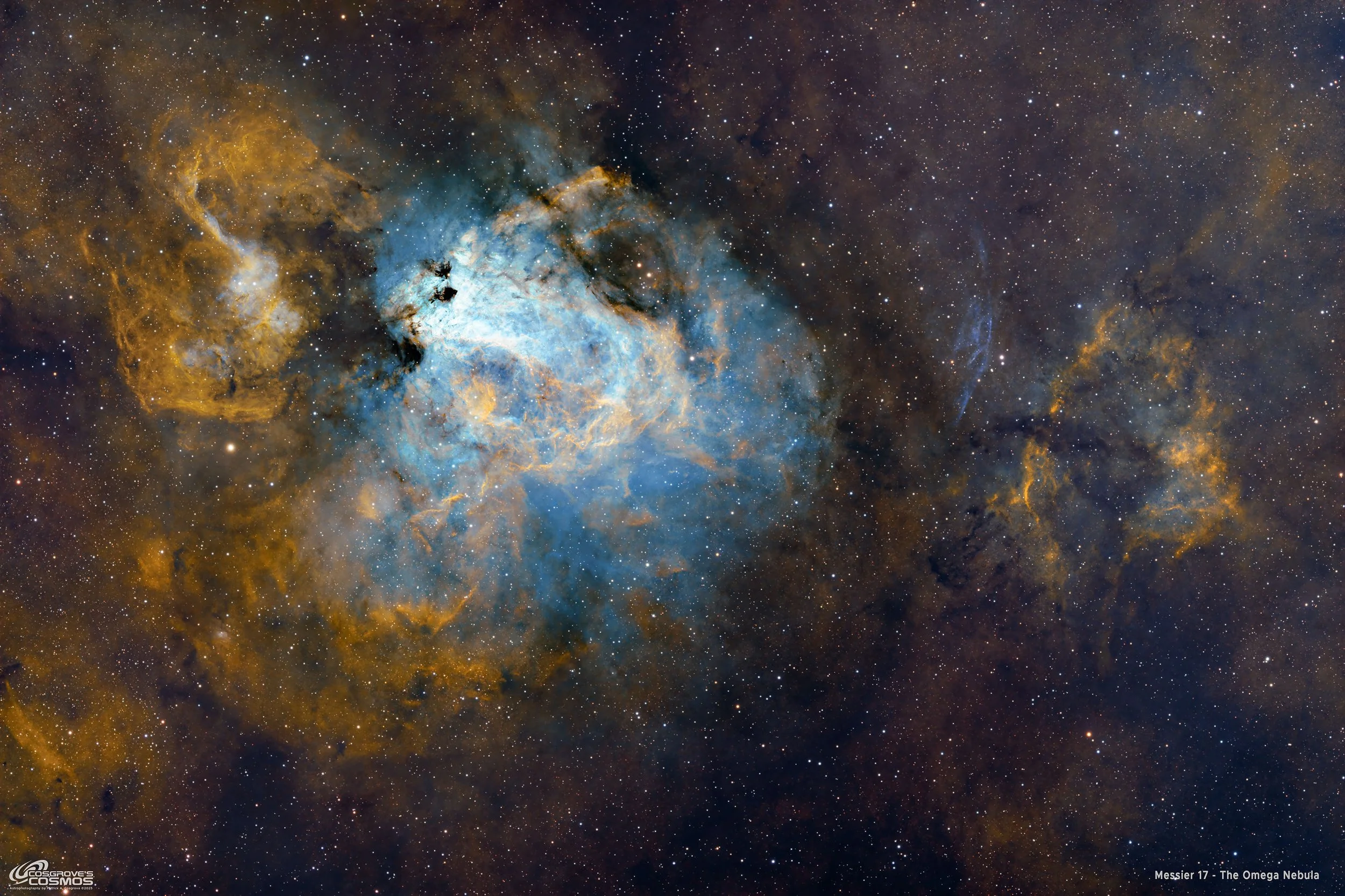
Messier 17 - The Omega Nebula - Victory After Heartbreak! (17 hours SHOrgb on M17!)
Messier 17, The Omega Nebula, is a bright and popular target in the summer constellation of Sagittarius.
This image is the result of 17 hours of SHOrgb exposure on my William Optics 132 LFT platform.
The narrowband view of this shows the target in a way that is not often seen.
Considering that this project started with three nights of exposure, where 2 of the nights had all of the frames out of focus, I am really happy with the final results.
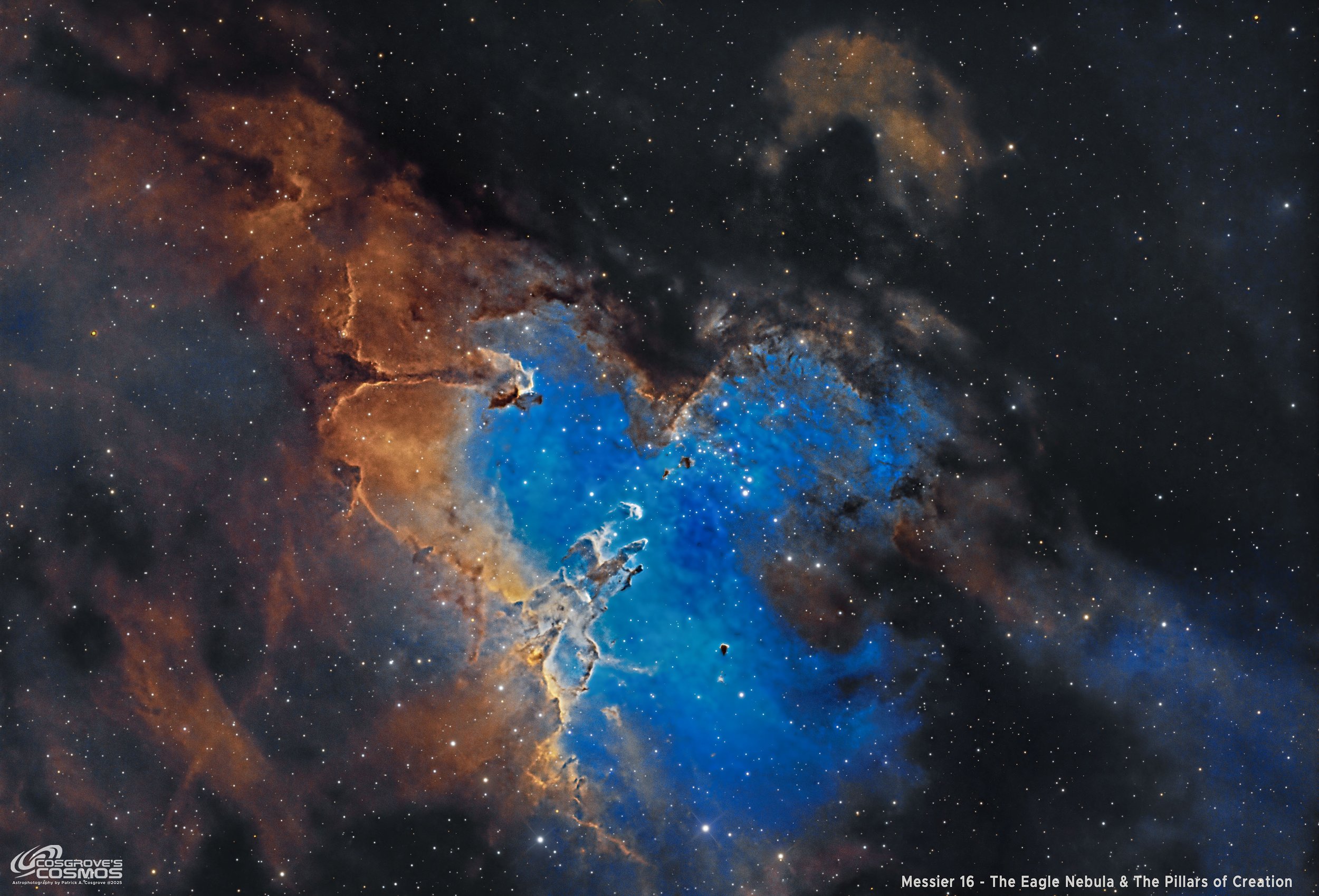
Messier 16 - The Eagle Nebula/The Pillars of Creation, 4.75 hours in SHO (A Narrowband Test of the SCA260 Scope)
This was a quick test to see how the Sharpstar SCA260 V2 scope did with a narrowband target. Selected was Messier 16, centered on the Pilrs of Creation. This was the result of 4.75 hrs of data collected on a very hot night, with the camera only getting to -10C.
Processing was a challenge due to Star Removal blemishes and some optical artifacts on some bright stars.
See the full report for details.
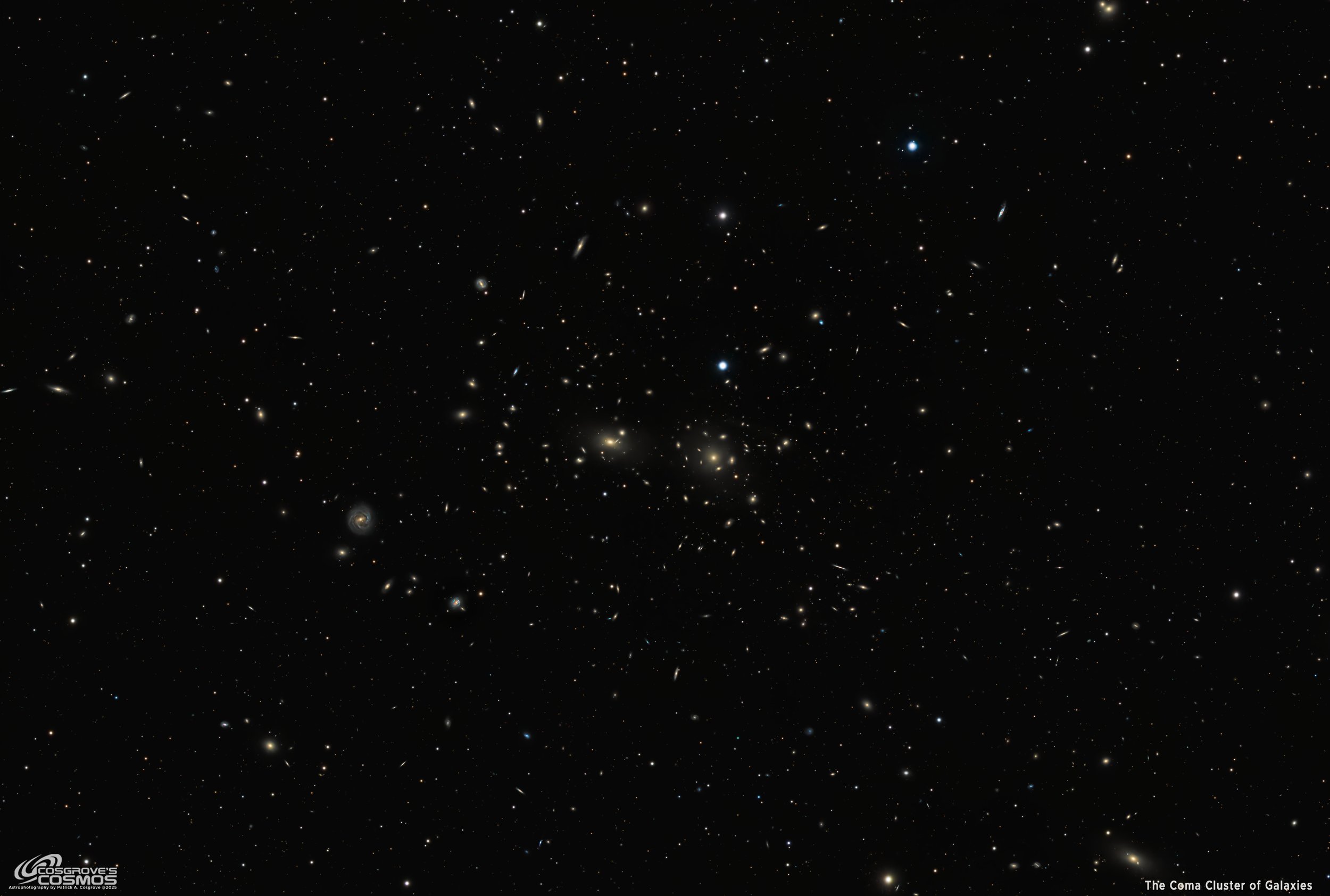
The Coma Cluster of Galaxies (Abell 1566) - Zoom In! 1000 Galaxies, 320M Light-Years Away! (~8.2 Hours of LRGB)
This is not just some star cluster! This image shows an immense cluster of over 1000 galaxies that are on average 320 million light-years away!
This image was the result of 8.2 hours of LRGB exposure taken on my William Optics platform from data collection during the first light of my Whispering Skies Observatory!

Messier 106 - First Light for The Sharpstar SCA260 V2! (10 hours in LHaRGB)
The first light for both my new Whispering Skies Observatory and my new Galaxy scope, the Sharpstar SCA260 V2!
This is M106 shot in HaLRGB with 10 hours and 7 minutes of integration!
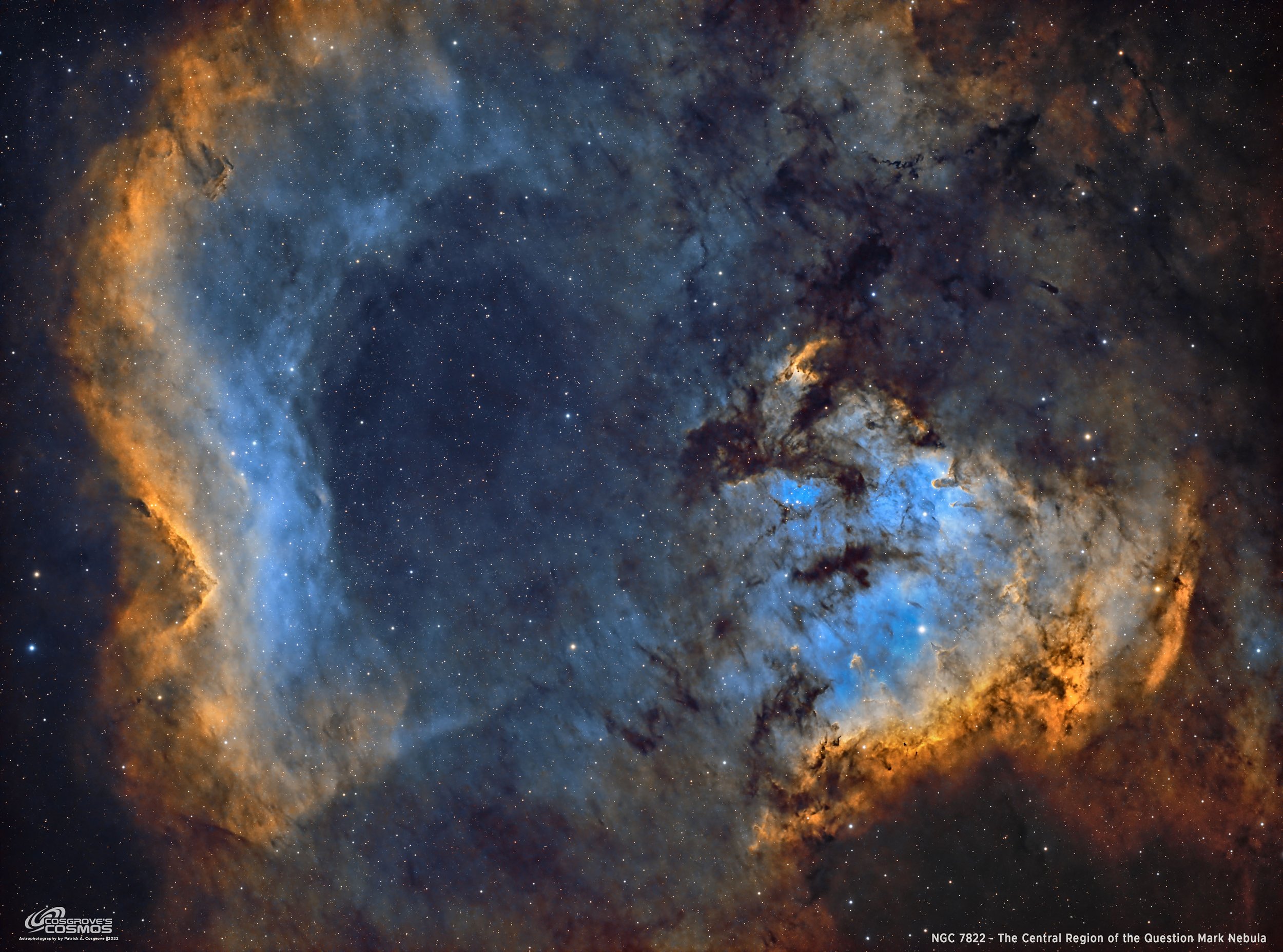
NGC 7822 - The Central Portion of the Question Mark Nebula (~14 hours in SHOrgb)
NGC 7822 is the Clamshell Nebula - located 2900 light years away in the constellation of Cepheus. This is a very large target, and with my smallest scope, I could still only fit the central portion of this complex area into the camera's field of view. This image results from just under 14 hours of integration and consists of a mix of narrowband data for the nebula and broadband RGB data for the stars.
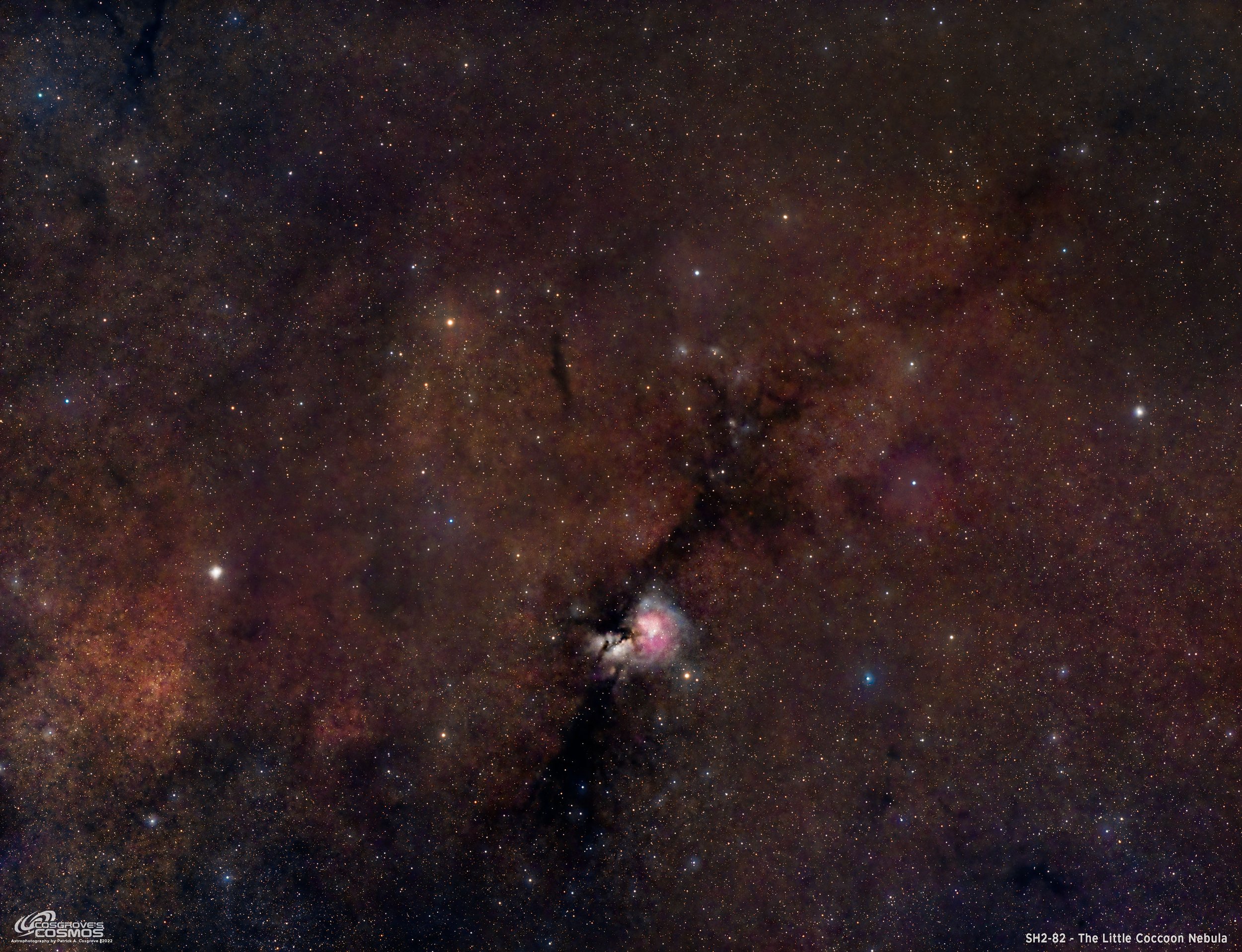
SH2-82 - The Little Cocoon Nebula - 7.3 Hours in LRGB
My first image of the year - and my first image from my new home after the move!
This is SH2-82—The Little Cocoon Nebula—7.3 hours in LRGB. Located ~4,000 light-years away in the constellation Sagitta, this emission/reflection nebula is in a rich region of the sky with a multitude of stars and dark dust lanes.
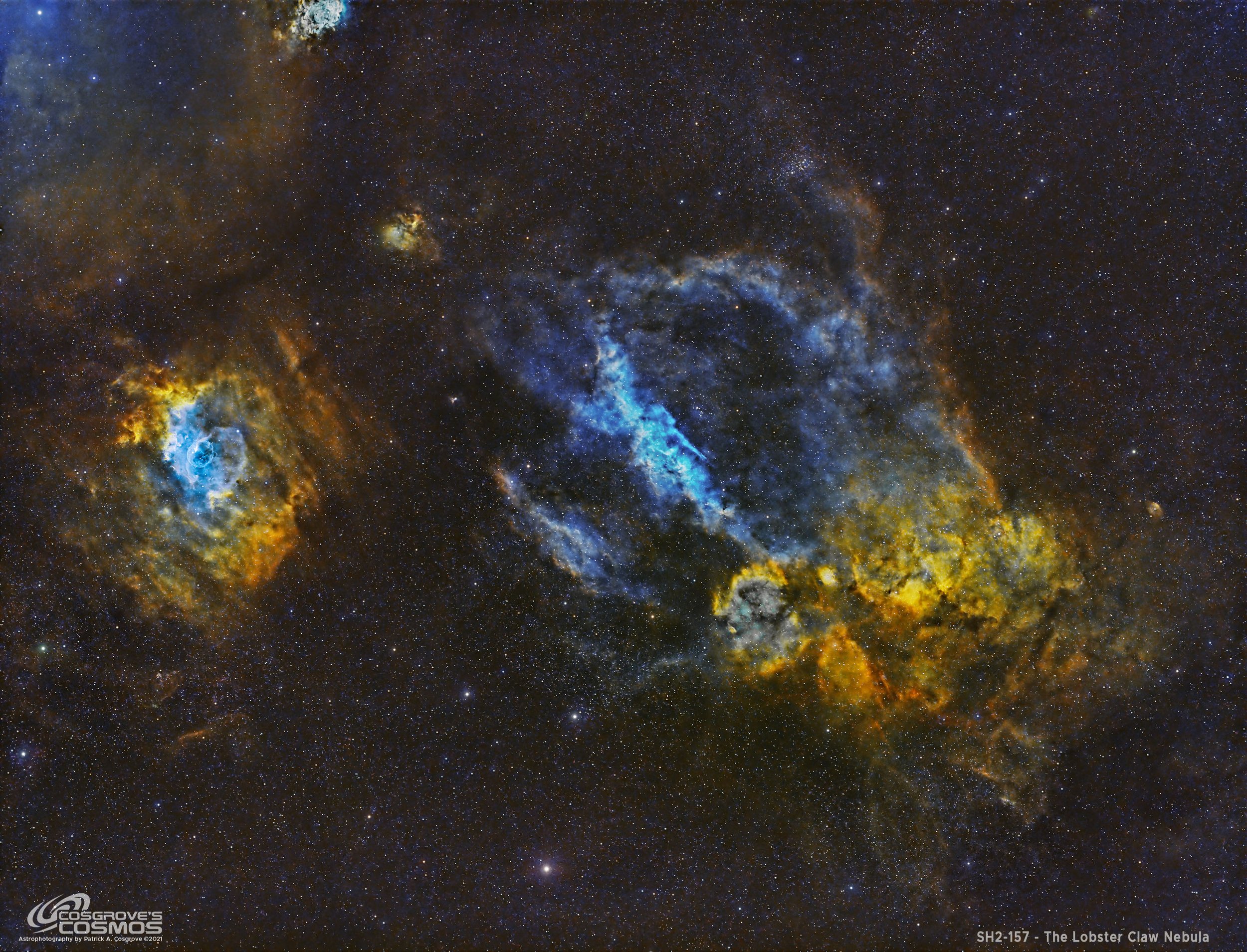
A Reprocess of SH2-157, The Lobster Claw Nebula - 4.25 hours in SHO.
SH2-157, The Lobster Claw Nebula, is located 11,000 light-years away in the constellation of Cassiopeia. This is a Reprocess Project - working with data in 2024 that was captured in 2021. I wanted to see if I could improve on this image. I think I did!
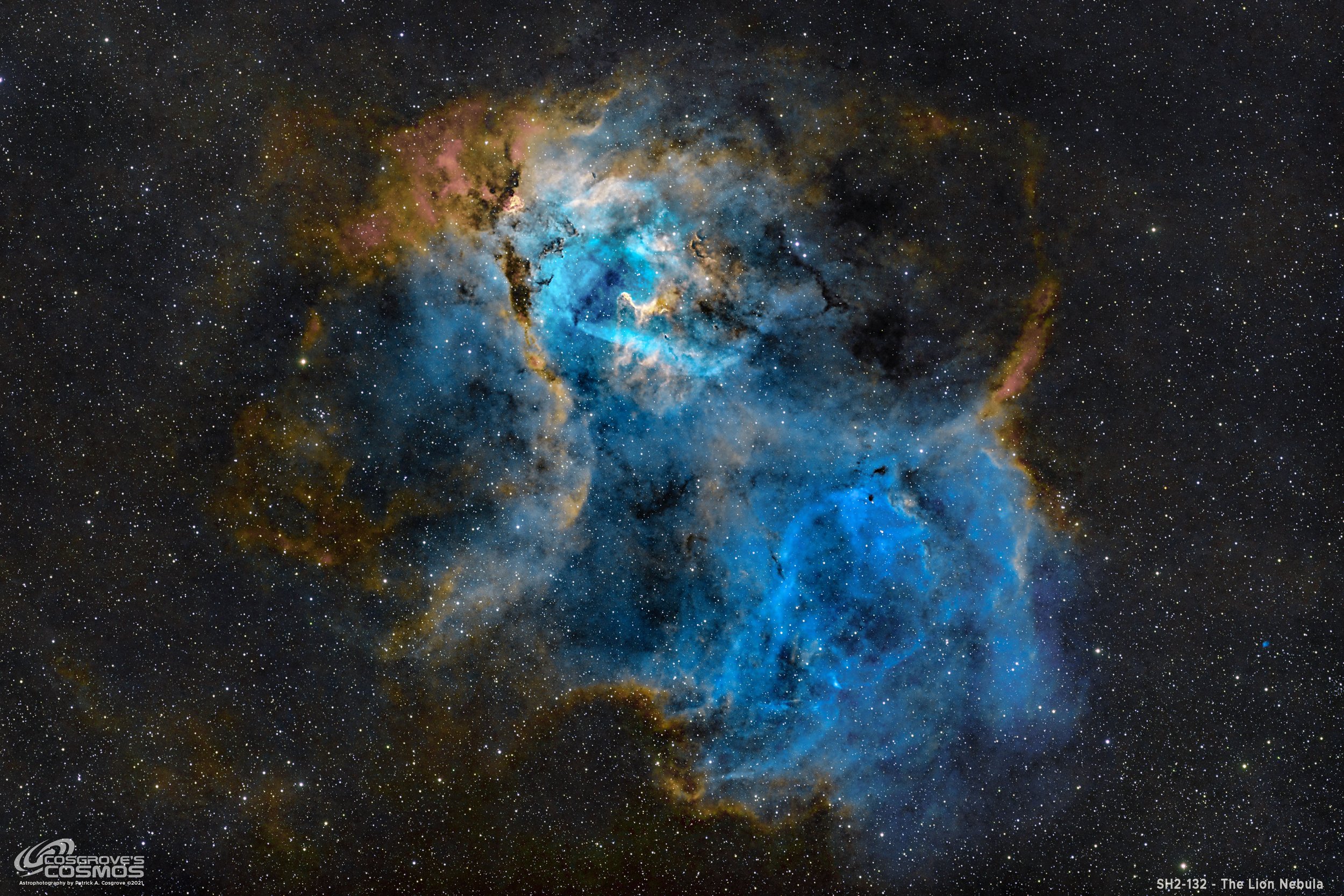
SH2-132 - A Reprocess of The Lion Nebula in SHO (8.33 hours)
This is an Image Reprocessing Project for SH2-132, also known as The Lion Nebula - whose data was originally collected in September of 2021.
The Lion Nebula is a rich HII region with star clusters, emission nebulae, and dark dust regions. Located in the southern portion of the constellation Cepheus, the Lion Nebula is roughly 10,00 light-years away in the Perseus Arm of the Milky Way Galaxy. This is a very faint and challenging target.
This image was taken on the Askar FRA400 Platform with 8.33 hours of exposure in narrowband.
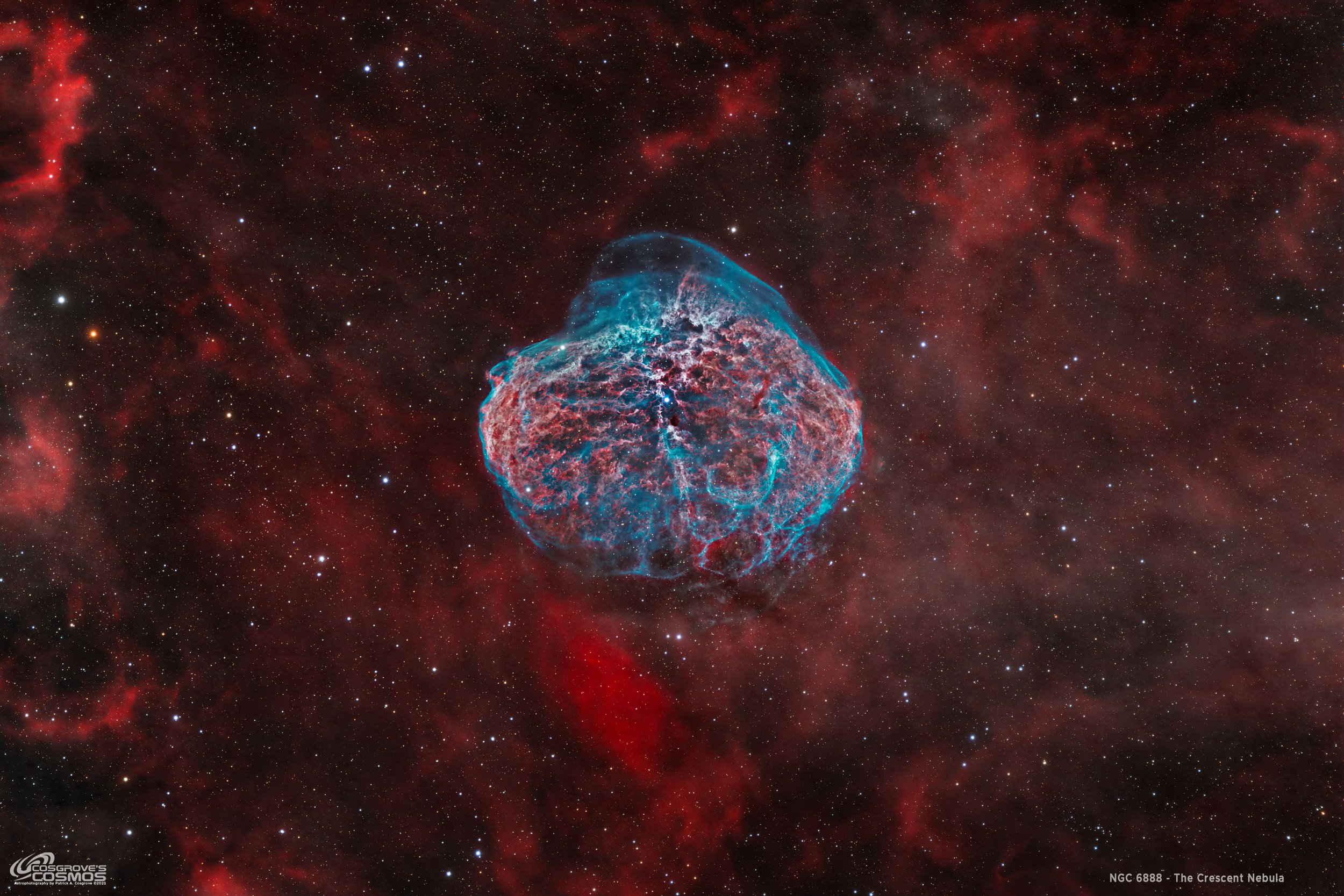
NGC 6888 - A Reprocess of The Crescent Nebula ~11 hours in HOOrgb
NGC 6888 - The Crescent Nebula is a famous emission nebula located in the constellation of Cygnus. This is a reprocessing project using image data first captured in September 2022.
SInce. I have no new data to process due to the wildfire smoke, I decided to use some new tools and processes to see if i could pull more details out from the O3 shell that surrounds the nebula.
THe resulting image show much more O3 detail - including some interesting convection cells towards the bottom of the nebula
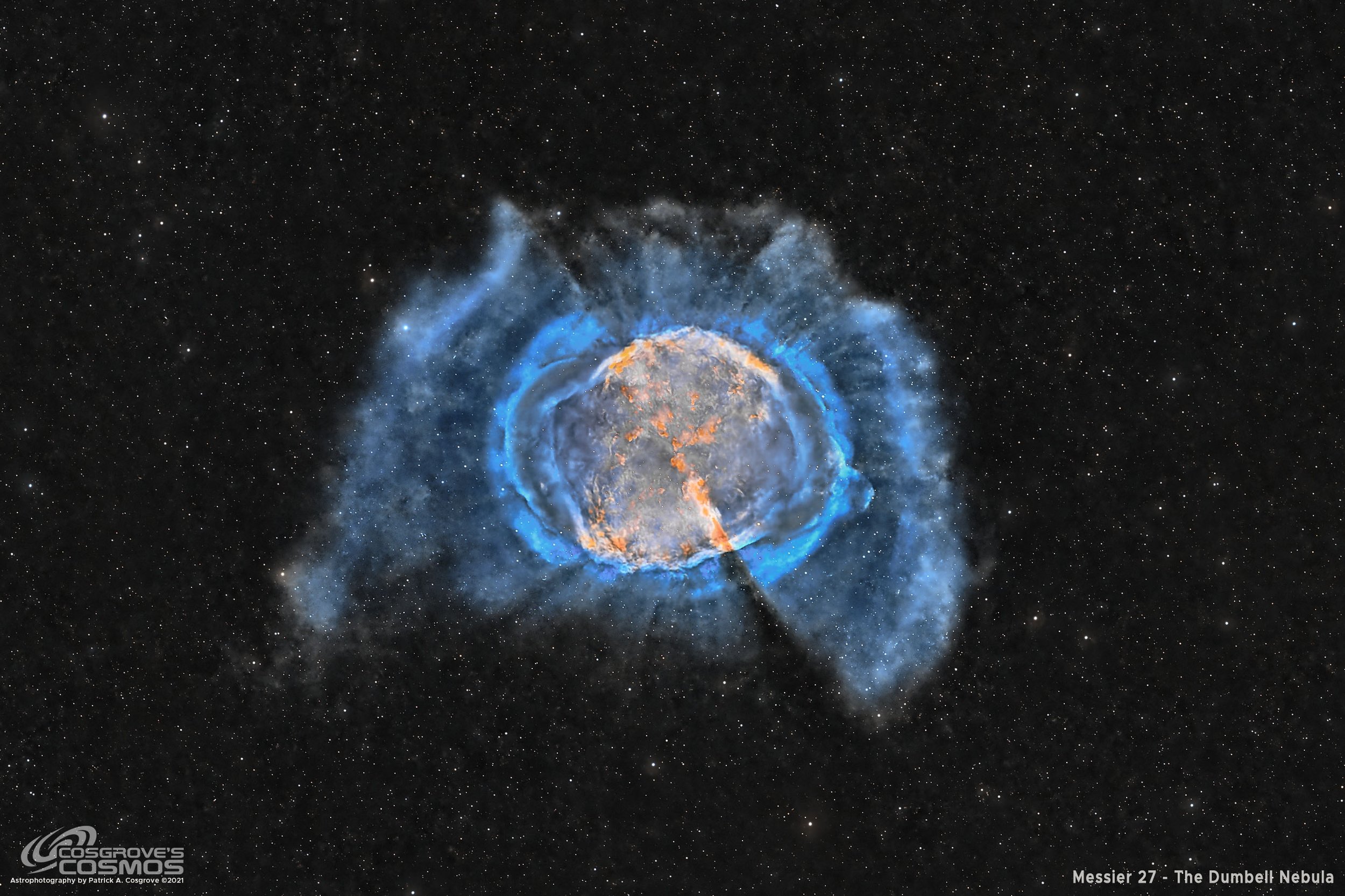
Messier 27 - A Reprocess of My Dumbbell Nebula Data in SHO - (10.25 Hours)
This imaging project is not a recapture of data for M27 - the Dumbell Nebula. Rather it is an effort to reprocess old data using new tools and new processing methods to address some concerns I had about the original image - where I thought that the stars were bloated and unsharp, and that I thought I should be able to bring out more detail in the amazing outer gas shells that narrowband imaging shows for this target.
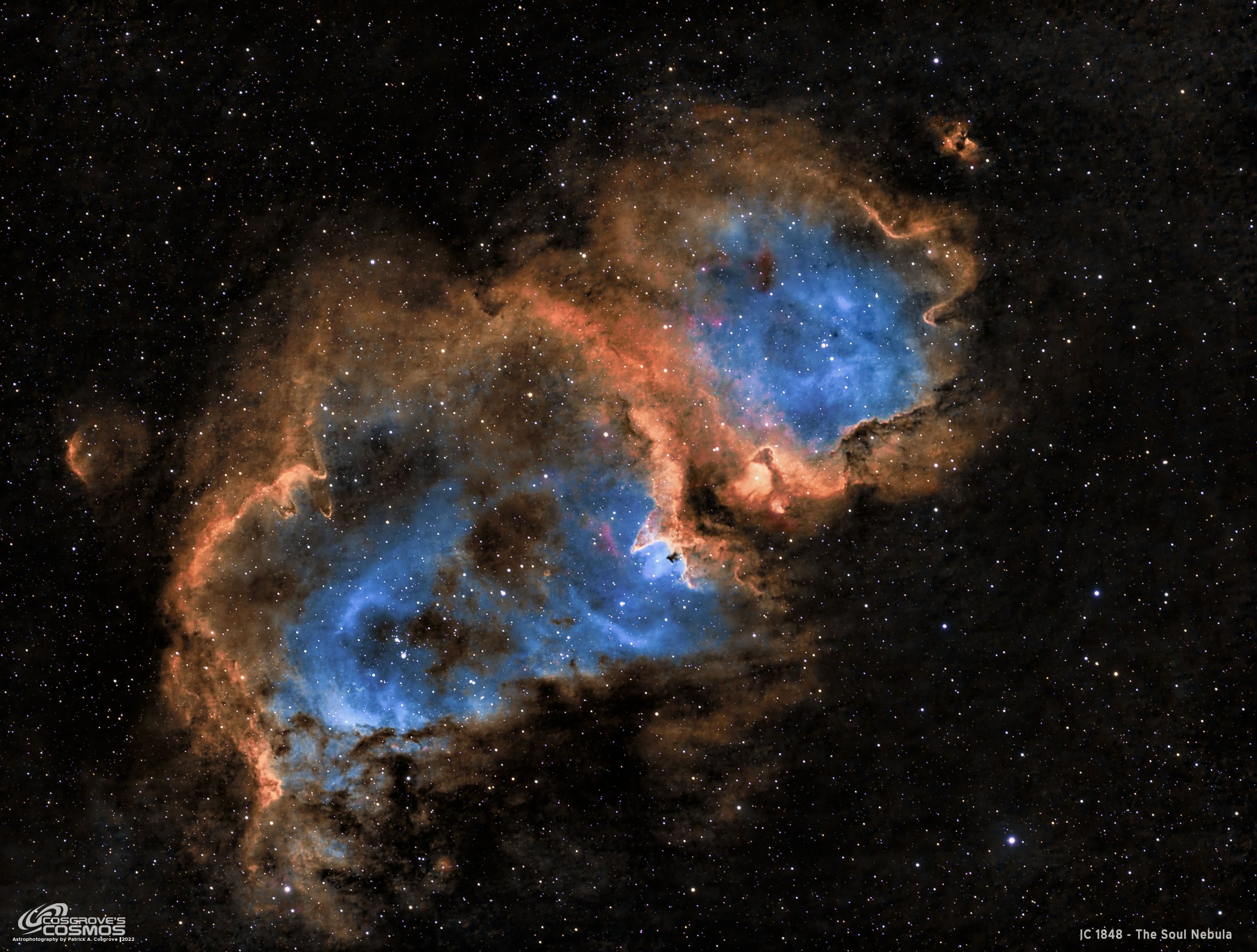
IC 1848 - The Soul Nebula - 6.8 hours in SHO (and a Change in Horses Mid-Stride!)
IC 1848, Better known as The Soul Nebula, is an emission nebula located 6,500 light-years away in the cancellation of Cassiopeia.
This image results from 6.8 hours of narrowband data collected with my Askar FRA400 Astrograph and my ZWO classic ASI1600MM-Pro camera on the nights of Oct 20 and 22 and Nov 23 of 2022.
The first two nights were collected using the IOPtron CEM26 mount, and the third night was collected using a brand new ZWO AM5 Harmonic mount. This was the first time using the AM5, and it did an exceptional job with tracking errors reduced by 400%!
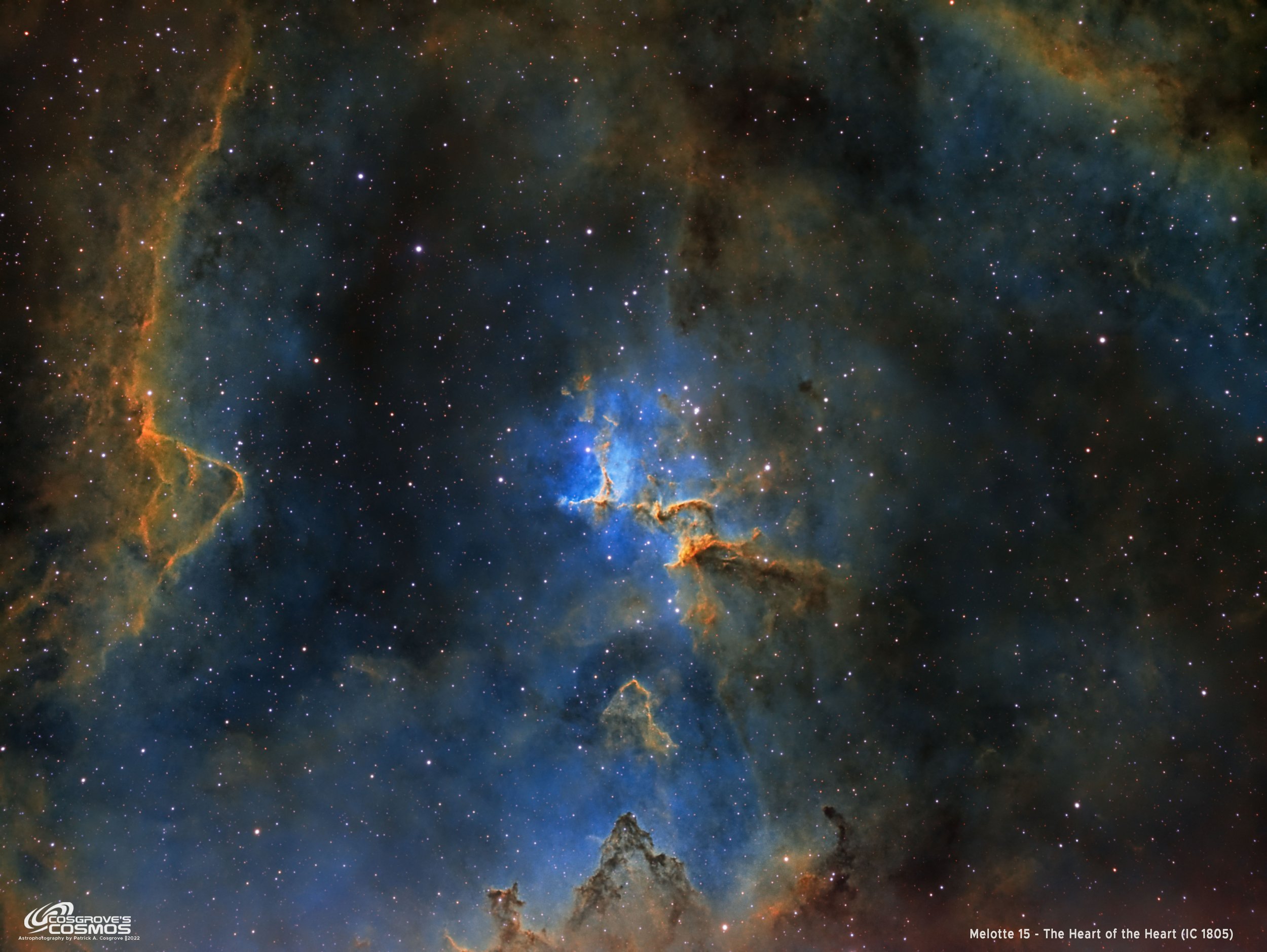
Melotte 15 - The Heart of the Heart Nebula (IC 1805) - 5.5 hours of SHO
Melotte 15, better known as the “Heart of the Heart,” is an open cluster with emission and reflection nebulae that creates an interesting structure that can be found in the center of IC 1805 - the Heart Nebula.
This rich region is located about 7,100 light-years from Earth in the constellation of Cassiopea.
This is image is the result of 5.5 hours of narrowband data collected on my William Optics 132mm FLT platform using a ZWO ASI1600MM-Prop camera.
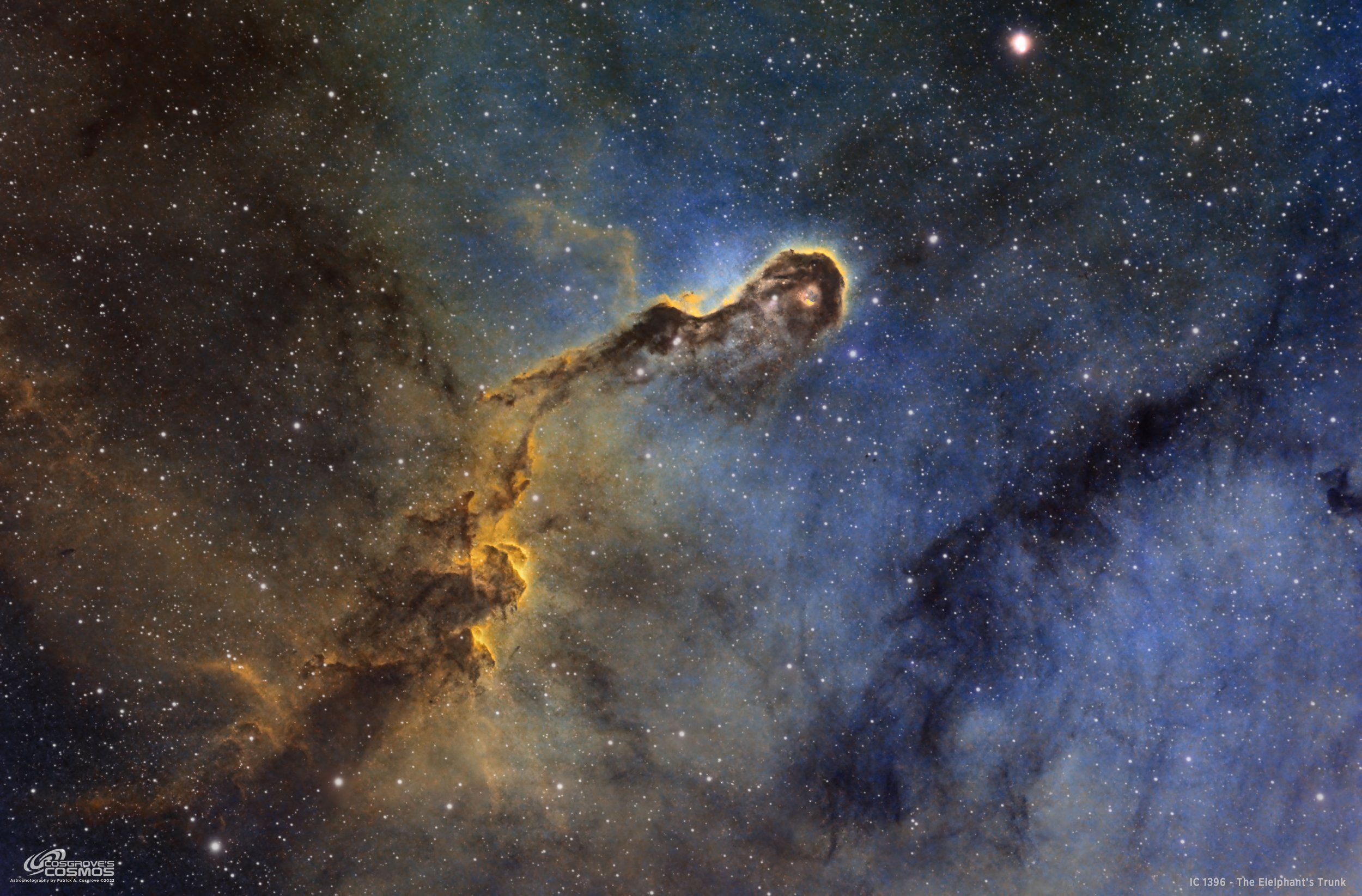
IC 1396A - The Elephant’s Trunk - 7.3 hrs in SHO (a Case of Virus Interuptus)
IC 1396A - The Elephants Trunk Nebula is located 2400 light-years away in the constellation of Cepheus. This is my fourth project involving this target - but the first where I used the newer generation ZWO ASI26MM-Pro camera and full narrowband data set at this image scale. My goal here was to collect about 15 hours on target. I only ended up getting 7.3 hours. My usual reason for missing my integration target is weather. Not this time. This time I was hit with a nasty virus and the worst cold of my life! I had to watch two precious clear nights slip away whilst I coughed and hacked away inside in misery….
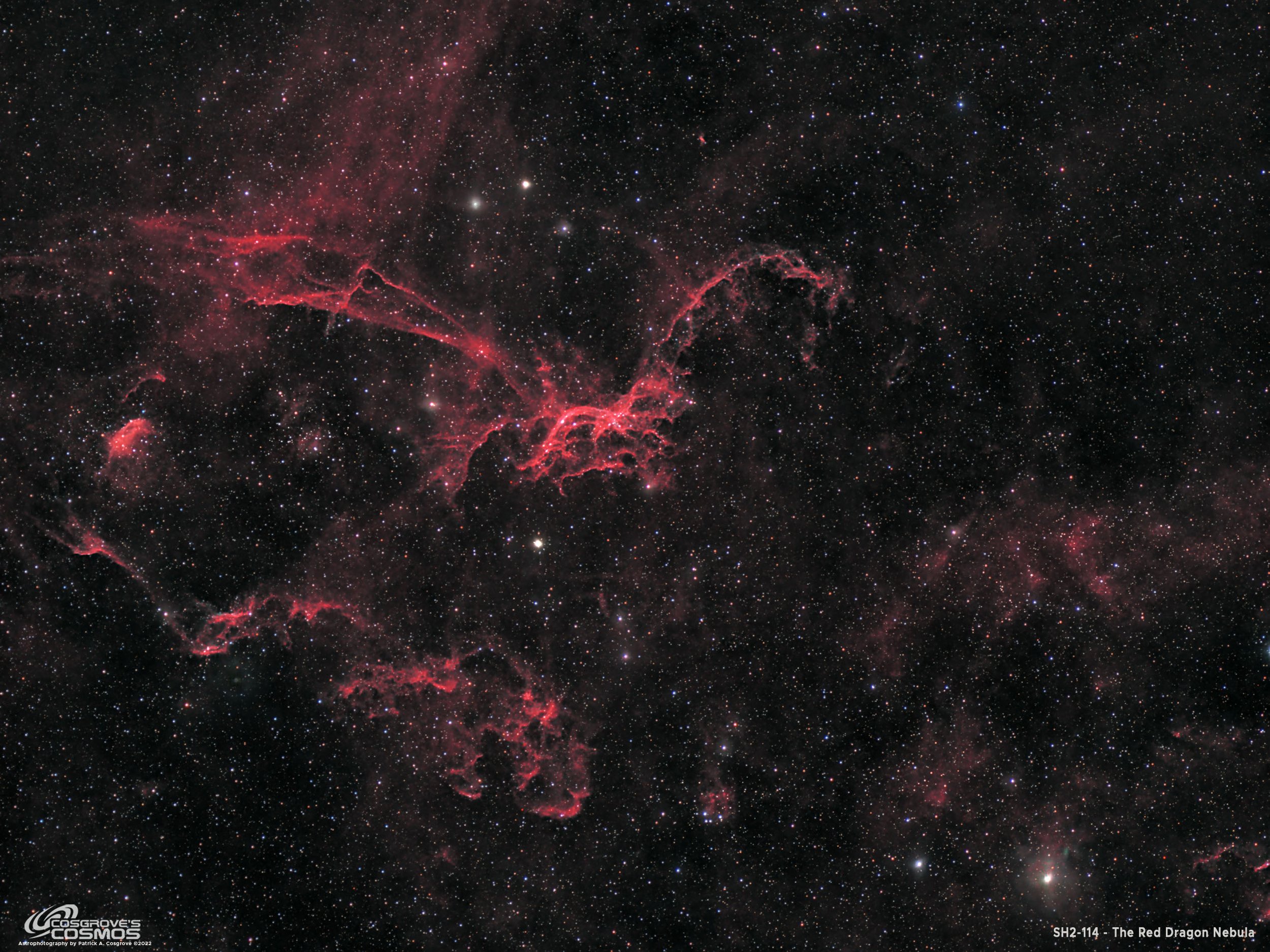
SH2-114 -The Flying Dragon Nebula - a VERY Faint Challenge Target - 17.5 hours HSSrgb
SH2-114 - The Flying Dragon Nebula - is an extremely faint emission nebula found in Cygnus. This has proven to be a challenging target. Primarily shot as a Bi-Color Narrowband Ha/S2 image, I found it was very hard to see the nebula in a single 5-minute sub! I ended up going back to capture more data over 8 nights in total spanning two moonless cycles. I also collects RBG data so that I could replace the stars with natural color RGB stars. two moonless cycles of the moon to capture data over 8 nights. I ended up with a total of 17.5 hours - my longest integration to date! And still it was a challenge to process this image!
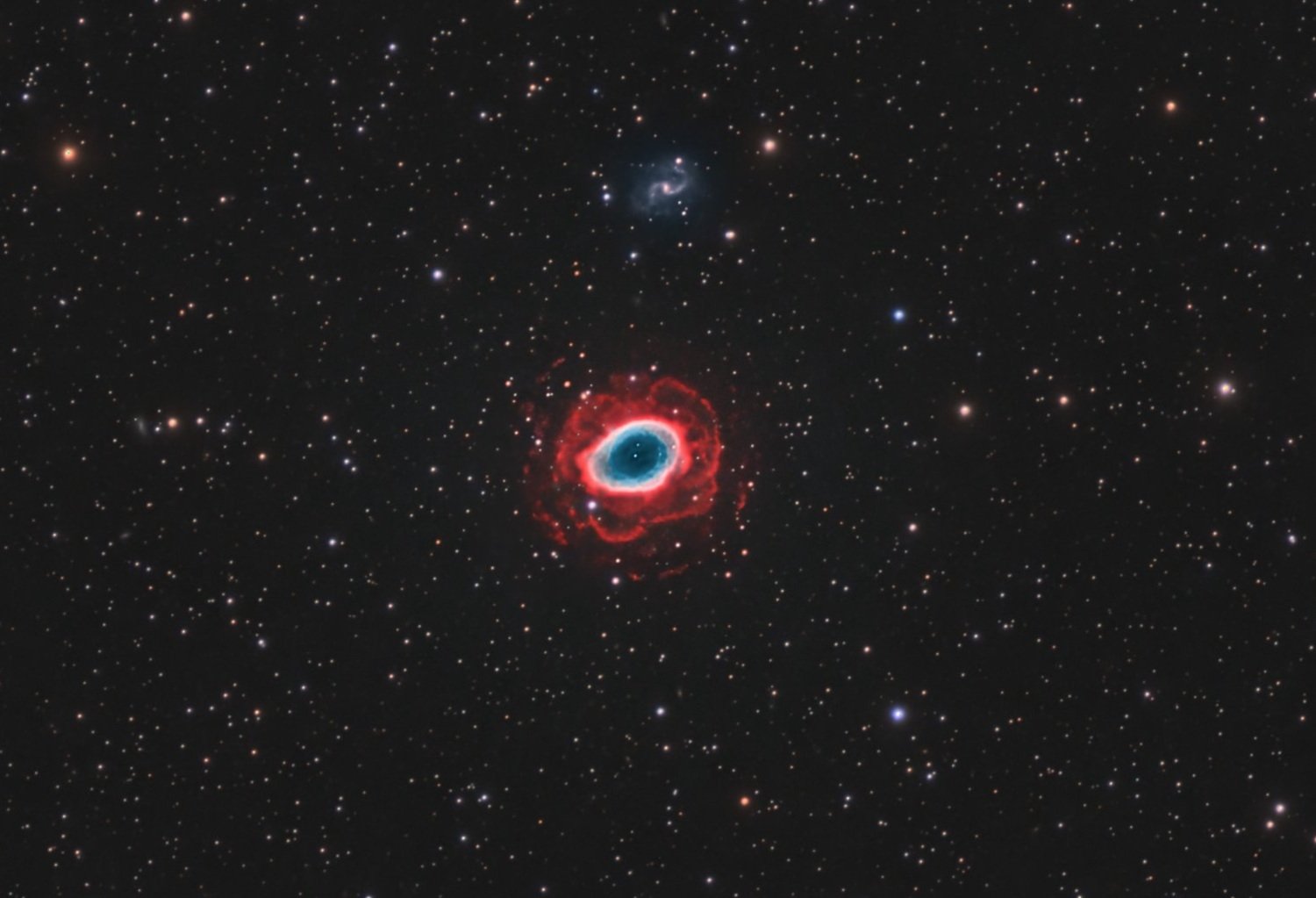
Messier 57 - The Ring Nebula - 14.7 hours in LHaRGB - Capturing the Outer Ring!
Messier 57, the Ring Nebula has long been a visual favorite of mine. It is also a target that I have shot two times before with poor results due to its small size. This time I wanted to try to do the best job I could, given the limitations of my current gear. I also wanted to get a really long integration. Finally, I wanted to add Ha data in an attempt to capture the red outer gas rings that are not seen visually and often not seen in the typical amateur images. While I ran into problems on the way, did pretty well in meeting my goals. See the full post for the entire story!
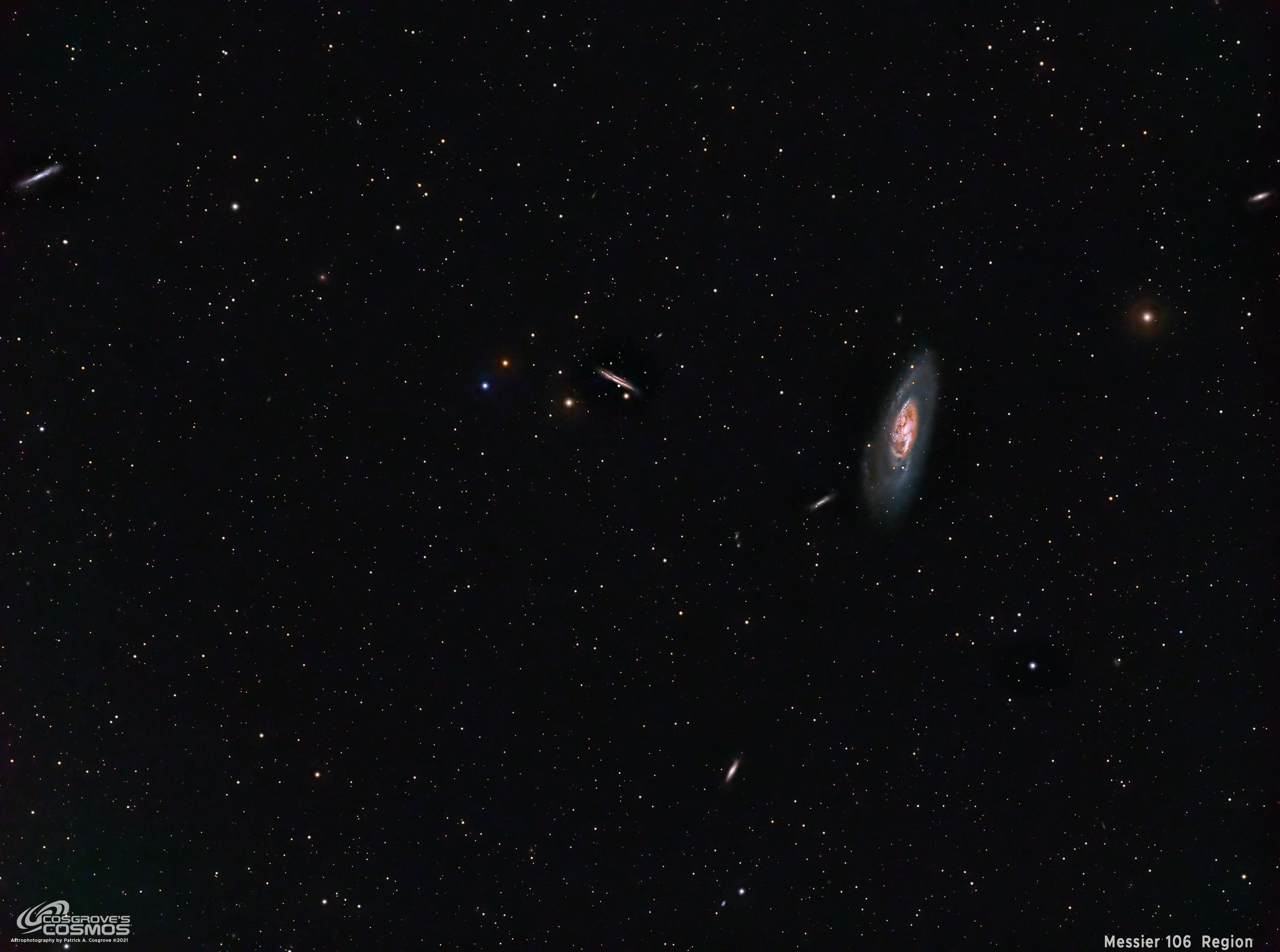
Messier 106 Region - 5.7 hours LRGB
Messier 106 is a galaxy in Canes Venatici, located 20-25 million light-years away.
Galaxy Season is challenging time to find targets when you are dealing with a widefield telescope. I finally decided to image the region around M106 as it contains a host smaller galaxies.
This is a 5.6 hour integration in LRGB using my Askar FRA400 Astrograph and the ZWO ASI1600MM-Pro camera.
